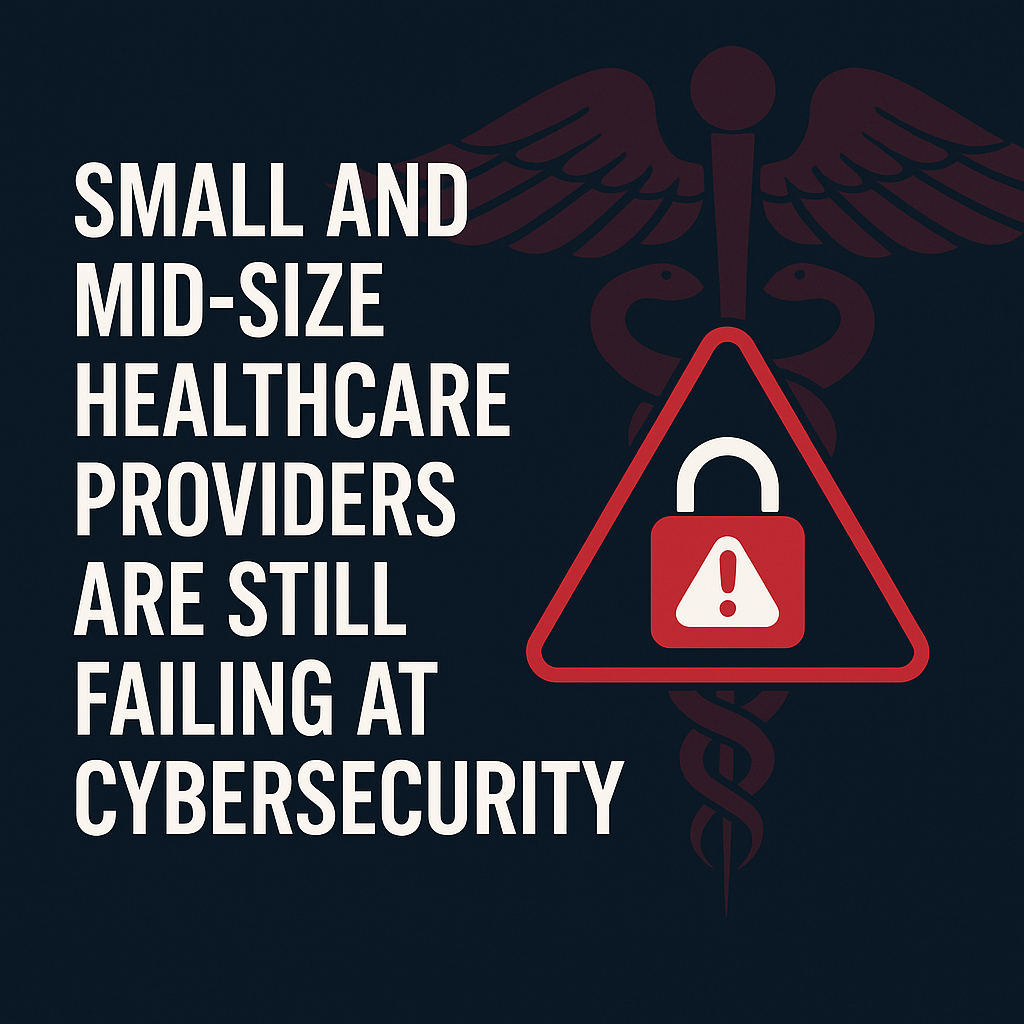Another small medical practice has closed its doors following a ransomware attack. This time, it was Alpha Medical Centre, a Georgia-based clinic that served its patients for years before being forced to shut down permanently after cybercriminals stole patient data and threatened to leak it.
Sadly, this isn’t rare anymore. We’re seeing it happen again and again—and not because the threat is new. It’s because too many small and mid-size healthcare providers still don’t take cybersecurity seriously until it’s too late.
Let’s talk about the disconnect—and what it’s costing us.
🔥 The Threat Is Real. The Response Still Isn’t.
Healthcare continues to be one of the most targeted industries for cyberattacks. Why?
Because criminals know many providers:
- Rely on outdated systems
- Outsource IT without oversight
- Lack trained staff
- And often have no plan at all for how to recover if systems go down.
Even worse, some practices operate under the dangerous belief that their EHR vendor or IT company “handles HIPAA”. That’s false—and the government has been crystal clear: HIPAA compliance is the provider’s responsibility.
📉 The Numbers Are Stark
- A major study by CynergisTek found that only 6% of covered entities are fully compliant with the HIPAA Security Rule.
- In 2023, failure to conduct a proper risk assessment was the #1 reason practices were fined or penalized by the U.S. Department of Health and Human Services (HHS).
- And in too many cases, the first time a provider learns they’re not compliant is when they apply for cyber insurance and get denied.
The systems to protect patients and practices exist. But in the small practice world, they’re often ignored, underfunded, or left to vendors who aren’t doing what the law requires.
🧯 Real Damage: More Than Just Fines
When a breach hits, it’s not just a compliance issue—it’s a business survival issue. Look at what happens:
- Alpha Medical Centre was forced to shut down permanently.
- Wood Ranch Medical in California did the same in 2019 after ransomware wiped out access to all their records.
- Dermatology practices, radiology clinics, even dental offices are now getting hit with class-action lawsuits—even when only a few dozen patient records were exposed.
HIPAA isn’t just paperwork. It’s about keeping your doors open and your patients safe.
🛠️ What Needs to Change
It’s time for providers—especially smaller, independent ones—to recognize that cybersecurity isn’t an IT project. It’s a core business function.
Here’s what every practice should be doing:
- Conduct a real HIPAA Risk Assessment, reviewed at least annually
- Have an incident response plan ready before you need it
- Verify your IT vendors’ protections, but don’t outsource accountability
- Train your staff—most breaches start with a simple email click
- Use tools like MFA, backups, and audit logs—and check them
💡 Final Word
It’s heartbreaking to see dedicated providers get pushed out of business by something preventable. We don’t need another wake-up call. We need action.
If your practice hasn’t had a meaningful HIPAA Risk Assessment—or if you’re unsure whether you’d survive a cyberattack—now is the time to fix that.
At Magister Business Advisors and HealthSecurely, we help practices do more than check boxes. We help you build resilience.
Because the next headline shouldn’t be your name.
📞 Call us today: 760-759-5900
🌐 Contact us: www.magisterba.com


